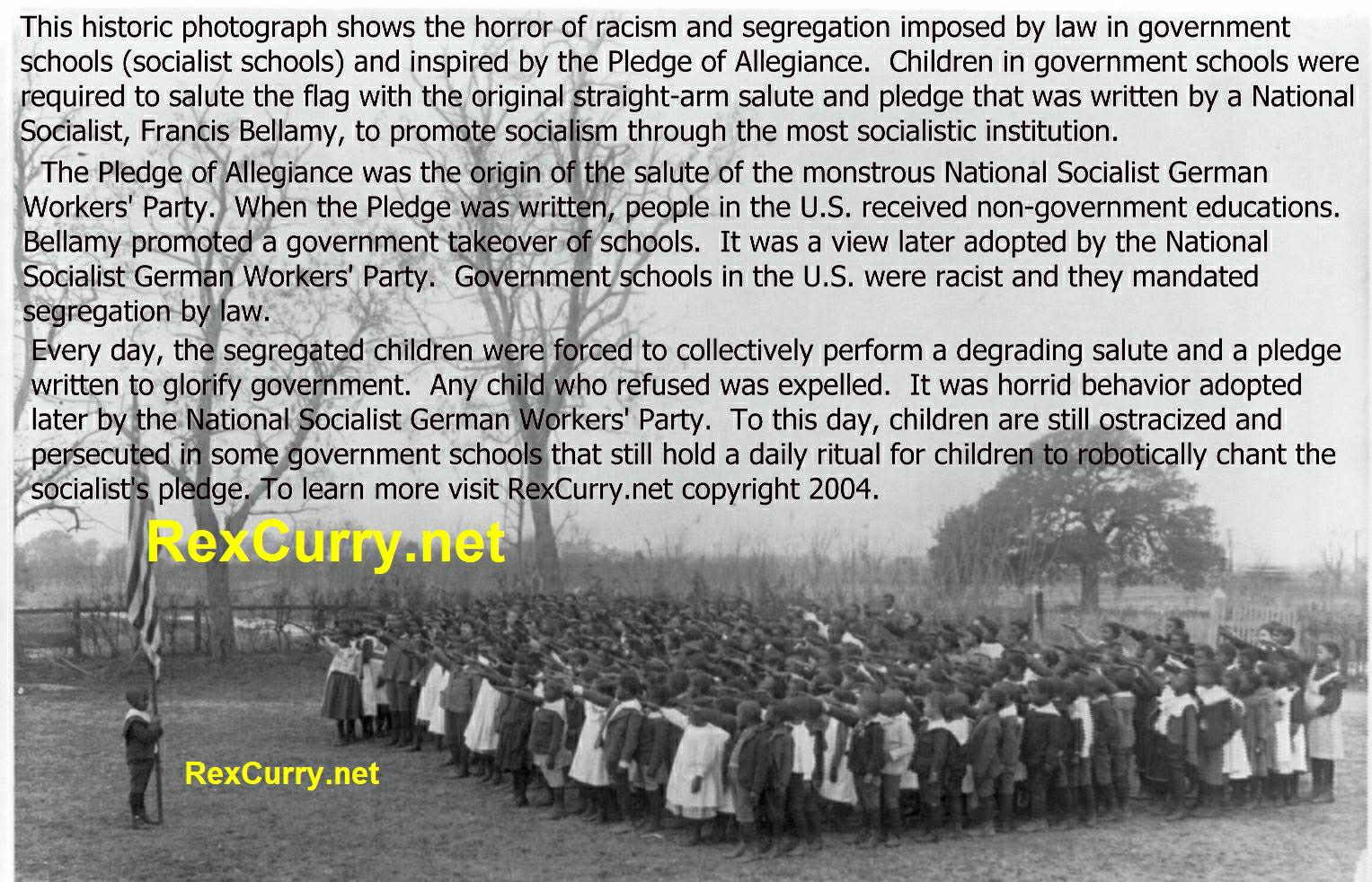"More such men should be shot," quipped one person. "I'd like to shit
on his grave," opined another. "This land seceded from England. States
have the same right to be in rebellion," explained a third. "I'd
walk a thousand miles to shit in his grave" said one more independently
of the one above. Those were Union people, not southern. A
newspaper writer suggested that the headline should read "Glorious News!"
Those sentiments are still expressed today by many people concerning all
office holders from the top down to City Hall. Such people think that
the death of any public official should be reported with the headline
"Glorious News!" http://rexcurry.net/pledgesoutherners.html
Those sentiments inspired Mad Crappers Clubs in many states where the deaths
of politicians are celebrated with defecation upon each politician's hole
to hell (or with a golden christening by anyone in a hurry). The Mad Crappers
Club web site maintains a list of locations of the graves of politicians so
that all of the government's victims can join in the festivities. The mounds
are topped with small signs (attached to drinking straws and toothpicks) with
pithy curses and nicknames to identify the gift-giver's "campaign donation."
It is quite different from the ritual of roses left each year on the
grave of Edgar Allen Poe (marking his birthday).
To paraphrase Clarence Darrow: "I have never killed a politician, but I have read many obituaries with great pleasure."
Mark Twain: "I didn't attend the funeral, but I sent a nice letter saying
I approved of it."
Politicians put the "fun" in the word "funeral" (their own). For a related
article by Dr. Sean Gabb regarding the passing of Tony Blair, please
click here http://rexcurry.net/bellamy-edward-military-socialism.html#Sean_Gabb
The article was inspired by Blair's disgusting acts with the President
of the United States and it raises the question of whether the esteemed
Dr. Gabb feels the same toward the President.
The author neglects the topic in the title of "Military Justice." Lincoln
destroyed the USA's constitution, including the writ of habeas
corpus, and Lincoln used military commissions to persecute, imprison
and kill people (including civilians) for exercising their First Amendment
right to freedom of speech. The author makes the laughable
remark that Lincoln had the ability to rise above insult. Lincoln
rose so far above insult that the killed 600,000 people and jailed and
killed people who insulted him under the First Amendment. More Americans
lost their lives in the Civil War than in any other wars, including the
more recent Vietnam War and World War II. Although the war took just
over four years - starting in 1861 and ending in 1865 - over 600,000 people
lost their lives and another million people were seriously injured. Even
after his death, Lincoln's military police-state persecuted, imprisoned
and killed people (including civilians) for saying things like "I'd like
to shit on his grave" or "If they had killed him four years ago it would
have been better."
Lincoln's police-state tactics still inspire domestic tyrants/terrorists
in the USA's government today.
Lincoln also inspired the notorious Bellamy family. Francis Bellamy
(author of the "Pledge of Allegiance") and Edward Bellamy (author of
the novel "Looking Backward") and Charles Bellamy (author of "A Moment
of Madness") were socialists, worshiped government, and loved Lincoln.
Edward and Charles were brothers, and Francis was their cousin. Francis
and Edward were both self-proclaimed National Socialists and their love
for Lincoln inspired the Bellamy dogma that they called "military socialism."
They wanted an "industrial army" to be imposed in the USA. Edward
inspired the "Nationalist Party" (in the USA) and their dogma influenced
socialists worldwide (including Germany) via “Nationalist Clubs.” They
wanted all of society to ape the military. That is why the federal
flag is in many local classrooms and over many local schools. http://rexcurry.net/pledge-lawyer.html
It is unfortunate that government officials cause the funerals of so many
people, instead of vice versa. The worship of government led to the socialist
Wholecaust (of which the Holocaust was a part): ~60 million killed under
the former Union of Soviet Socialist Republics; ~50 million under the
Peoples' Republic of China; ~20 million under the National Socialist
German Workers' Party. http://rexcurry.net/socialists.html
The Pledge of Allegiance (to the USA's flag) as written by Francis Bellamy,
began with a military salute. During the pledge the military salute then
stretched out toward the flag. In actual use, the second part of the
gesture was performed with a straight arm and palm down by children casually
performing the forced ritual chanting. Dr. Rex Curry showed that,
due to the way that both gestures were used sequentially in the pledge,
the military salute led to the Nazi salute. The Nazi salute is an extended
military salute via the Pledge and via the dogma of "military socialism"
from the USA. Dr. Curry helped to establish that the straight-arm salute
was not an ancient Roman salute, and that the "ancient Roman salute" is
a myth. The myth is still repeated in modern efforts to cover-up Dr.
Curry's discoveries about the Pledge's poisonous pedigree. The Pledge was
the origin of the Nazi salute. "Nazi" means "National Socialist German
Workers' Party." A mnemonic device is the swastika. Although the swastika
was an ancient symbol, Professor Curry discovered that it was also used
sometimes by German National Socialists as alphabetic symbolism, including
meshed "S" letters for their "socialism." Hitler altered his own
signature to use the same stylized "S" letter for "socialist" and similar
alphabetic symbolism still shows on Volkswagens.
The Pledge is still robotically chanted en masse daily for 12 years of
a child's life in many government schools at the ring of a government
bell. Laws require teachers to ask student to chant it. It
is not important that the gesture has changed.
***************
A fan in the Mad Crappers Club sent this in. They use it to do their duty.
Many kindergartners think that chanting the Pledge of Allegiance is your
duty.
They think of it as an enormous duty. They say that an enormous duty is
often stinky.
Social Security toilet paper http://rexcurry.net/ssntp3.jpg

American Flag Toilet Paper

Flag Toilet Paper
Using the flag to wipe your ass? Government assholes
often use the flag to clean their own excrement.
Flag towels, flag handkerchiefs, flag napkins, and flag bandanas
are also available for your wiping pleasure.
Make a pledge to heighten good hygiene for the Homeland.
**************
With climbing support in polls of likely Republican voters, Candidate and
representative Ron Paul set a one-day GOP record by raising $4.3 million on
the Internet from 38,000 donors on Nov. 5, 2007 -- Guy Fawkes Day, the commemoration
of a British anarchist who plotted to blow up Parliament and kill King James
I in 1605. Paul's campaign, which is three-quarters of the way to its goal
of raising "$12 Million to Win" by Dec. 31, didn't even organize the fundraiser
-- an independent-minded supporter did.
When a fierce Republican foe of the wars on drugs and terrorism is able,
without really trying, to pull in a record haul of campaign cash on a day
dedicated to an attempted regicide, it's clear that a new and potentially
transformative force is growing in American politics.
***************
by Sean Gabb for Free Life Commentary, A Personal
View from The Director of the Libertarian Alliance
Issue Number 162 27th June 2007 (The article
was inspired by Blair's disgusting acts with the President of the United
States and it raises the question of whether the esteemed Dr. Gabb would
substitute the name of the President for that of Tony Blair, with other
minor alterations.)
Tony
Blair: The Traitor Departs
As I write, Tony Blair is about to stop being Prime Minister. I have waited
ten years to see this day. I will celebrate later today by opening a bottle
of champagne. In the meantime, I will make the briefest possible farewell
to the man.
I am told Mr Blair has a heart condition. I hope this kills him within
five years, and that no day between now and then will be other than filled
with pain. I hope that fears of being arrested as a war criminal will keep
him from seeing anywhere nice in Europe again. I hope that his lecture
tours of America will be ruined by popular demonstrations against him and
by the tort lawyers. I hope his new job as an envoy in the Levant will end
in bitter disappointment. I hope his business ventures will all end in disaster.
I hope that death, when it comes, will find a man broken in body and soul.
Of course, he could not have completed the transformation of England
into a panopticon police state without the collaboration of an entire political
class, and the indifference of the human sheep in the street. Nor could
he have taken us so disgracefully to war but for the greed and stupidity
of all around him, and for the moral cowardice of the chiefs of staff. But
for ten years, he was in charge of things, and he did more than anyone else
to drive them forward. It is only fitting that he should receive the greater
part of the moral blame.
I have done with the man. I wish him dead, but only after much suffering.
Better still, I wish he had never been born.
NB - Sean Gabb's new book, Cultural Revolution, Culture War: How Conservatives
Lost England, and How to Get It Back, can be downloaded free on the web.
You can help by contributing to publishing and distribution costs
******************
Edward Bellamy used the military hierarchy in his dystopia. To wit: "The
line of promotion for the meritorious lies through three grades to the
officer’s grade, and thence up through the lieutenancies to the captaincy
or foremanship, and superintendency or colonel’s rank. Next, with an intervening
grade in some of the larger trades, come the general of the guild, under
whose immediate control all the operations of the trade are conducted.
This officer is at the head of the national bureau representing his trade,
and is responsible for its work to the administration. The general of his
guild holds a splendid position, and one which amply satisfies the ambition
of most men, but above his rank... is that of the chifs of the ten great
departments, or groups of allied trades. The chiefs of these ten grand divisions
of the industrial arm may be compared to your commanders of army corps,
or lieutenant-generals, each having from a dozen to a score of generals
of separate guilds reporting to him. Above these ten great officers, who
form his council, is the general-in-chief, who is the President of the
United States."
Bellamy's nightmare inspired Trotsky’s goal to "militarize labor"
in the Union of Soviet Socialist Republics (after the Civil War in Russia
in 1921), and the system of Soviet socialist central planning that Stalin
imposed in 1929 that expanded the ranks of the Prison Gulag by tens of millions,
and the systme of socialist central planning that Hitler imposed under the
National Socialist German Workers Party, and the socialist planning impoased
by Mao in the Peoples' Republic of China.
It led to the socialist Wholecaust (of which the Holocaust was a part):
62 million killed under the former Union of Soviet Socialist Republics;
49 million under the Peoples' Republic of China; 21 million under the
National Socialist German Workers' Party. http://rexcurry.net/socialists.html
Trotsky's first government post in the R.S.F.S.R. was as commissar
of foreign affairs. In 1918 he became commissar of war, organizing the Soviet
Socialist Army.
******************
1889 Edward Bellamy wrote the short story, “An Echo of Antietam,” in which
he glorifies the militarism via a group of men marching to join the Union
army.
“The imposing
mass,” Bellamy wrote, “gives the impression of a single organism. One
forgets to look for the individuals in it, forgets that there are individuals.”
“What a pity that the tonic air of battlefields ... cannot be gathered up and preserved as a precious elixir to reinvigorate the atmosphere in times of peace, when men grow faint of heart and cowardly, and quake at the thought of death.”
As Bellamy’s
protagonist in the novel "Looking Backward," the character Dr. Leete says
“occasional wars ... were absolutely necessary to prevent your society,
otherwise so utterly sordid and selfish in its ideas, from dissolving into
absolute putrescence.”
In "How I Came to Write Looking Backward" from The Nationalist, May 1889, Edward Bellamy said:
In the first draft of Looking
Backward, though the immediate scene was laid in America (in Asheville,
North Carolina, instead of Boston, by the way), the United States was supposed
to be merely an administrative province of the great World Nation, whose
affairs were directed from the World Capital which was declared to be the
city of Berne, in Switzerland. The action of the story was made to begin
in the thirtieth century."
The opening scene was a grand parade of a departmental division of the industrial army on the occasion of the annual muster day when the young men coming of age that year were mustered into the national service and those who that year had reached the age of exemption were mustered out. That chapter always pleased me and it was with some regrets that I left it out of the final draft. The solemn pageantry of the great festival of the year, the impressive ceremonial of the oath of duty taken by the new recruits in presence of the world-standard, the formal return of the thanks of humanity to the veterans who received their honorable dismissal from service, the review and march past of the entire body of the local industrial forces, each battalion with its appropriate insignia, the triumphal arches, the garlanded streets, the banquets, the music, the open theatres and pleasure gardens, with all the features of a gala day sacred to the civic virtues and the enthusiasm of humanity, furnished materials for a picture exhilarating at least to the painter.
The idea of committing the duty of maintaining the community to an industrial army, precisely as the duty of protecting it is entrusted to a military army, was directly suggested to me by the grand object lesson of the organization of an entire people for national purposes presented by the military system of universal service for fixed and equal terms, which has been practically adopted by the nations of Europe and theoretically adopted everywhere else as the only just and only effectual plan of public defense on a great scale. What inference could possibly be more obvious and more unquestionable than the advisability of trying to see if a plan which was found to work so well for purposes of destruction might not be profitably applied to the business of production now in such shocking confusion. But while this idea had for some time been vaguely floating in my mind, for a year or two I think at least, I had been far from realizing all that was in it, and only thought then of utilizing it as an analogy to lend an effect of feasibility to the fancy sketch I had on hand. It was not till I began to work out the details of the scheme by way of explaining how the people of the thirtieth century disposed of the awkward problems of labor and avoided the evils of a classified society that I perceived the full potency of the instrument I was using and recognized in the modern military system not merely a rhetorical analogy for a national industrial service, but its prototype, furnishing at once a complete working model for its organization, an arsenal of patriotic and national motives and arguments for its animation, and the unanswerable demonstration of its feasibility drawn from the actual experience of whole nations organized and manoeuvred as armies.
Something in this way it was that,
no thanks to myself, I stumbled over the destined cornerstone of the new
social order. It scarcely needs to be said that having once apprehended
it for what it was, it became a matter of pressing importance to me to show
it in the same light to other people. This led to a complete recasting, both
in form and purpose, of the book I was engaged upon. Instead of a mere
fairy tale of social perfection, it became the vehicle of a definite scheme
of industrial reorganization.
......This conviction as to the shortness
of the time in which the hope of Nationalization is to be realized by the
birth of the new, and the first true, nation, I wish to say, is one which
every day's reflection and observation, since the publication of Looking
Backward, has tended to confirm.
*****************
Looking Backward From 2000 to 1887, Chapter 2:
The thirtieth day of May, 1887, fell on a Monday. It was one of the annual holidays of the nation in the latter third of the nineteenth century, being set apart under the name of Decoration Day, for doing honor to the memory of the soldiers of the North who took part in the war for the preservation of the union of the States. The survivors of the war, escorted by military and civic processions and bands of music, were wont on this occasion to visit the cemeteries and lay wreaths of flowers upon the graves of their dead comrades, the ceremony being a very solemn and touching one. The eldest brother of Edith Bartlett had fallen in the war, and on Decoration Day the family was in the habit of making a visit to Mount Auburn, where he lay.
I had asked permission to make one of the party, and, on our return to
the city at nightfall, remained to dine with the family of my betrothed.
In the drawing-room, after dinner, I picked up an evening paper and read
of a fresh strike in the building trades, which would probably still further
delay the completion of my unlucky house. I remember distinctly how exasperated
I was at this, and the objurgations, as forcible as the presence of the
ladies permitted, which I lavished upon workmen in general, and these strikers
in particular. I had abundant sympathy from those about me, and the remarks
made in the desultory conversation which followed, upon the unprincipled
conduct of the labor agitators, were calculated to make those gentlemen's
ears tingle. It was agreed that affairs were going from bad to worse very
fast, and that there was no telling what we should come to soon. "The worst
of it," I remember Mrs. Bartlett's saying, "is that the working classes all
over the world seem to be going crazy at once. In Europe it is far worse
even than here. I'm sure I should not dare to live there at all. I asked Mr.
Bartlett the other day where we should emigrate to if all the terrible things
took place which those socialists threaten. He said he did not know any place
now where society could be called stable except Greenland, Patagonia, and
the Chinese Empire." "Those Chinamen knew what they were about," somebody
added, "when they refused to let in our western civilization. They knew what
it would lead to better than we did. They saw it was nothing but dynamite
in disguise."
********************
Looking Backward From 2000 to 1887, Chapter 7:
"It is after you have mustered your industrial army into service," I said, "that I should expect the chief difficulty to arise, for there its analogy with a military army must cease. Soldiers have all the same thing, and a very simple thing, to do, namely, to practice the manual of arms, to march and stand guard. But the industrial army must learn and follow two or three hundred diverse trades and avocations. What administrative talent can be equal to determining wisely what trade or business every individual in a great nation shall pursue?"
"The administration has nothing to do with determining that point."
"Who does determine it, then?" I asked.
"Every man for himself in accordance with his natural aptitude, the utmost
pains being taken to enable him to find out what his natural aptitude really
is. The principle on which our industrial army is organized is that a
man's natural endowments, mental and physical, determine what he can work
at most profitably to the nation and most satisfactorily to himself. While
the obligation of service in some form is not to be evaded, voluntary election,
subject only to necessary regulation, is depended on to determine the particular
sort of service every man is to render. As an individual's satisfaction
during his term of service depends on his having an occupation to his taste,
parents and teachers watch from early years for indications of special
aptitudes in children. A thorough study of the National industrial system,
with the history and rudiments of all the great trades, is an essential part
of our educational system.
*************
Equality, Chapter on TWENTIETH-CENTURY FARMING.
"No doubt," replied the doctor, "but this alternation, far from involving
either a wasteful relaxation of effort or an excessive strain on the
worker, furnishes occasions of recreation which add a special attraction
to the agricultural occupation. The seasons of planting and harvesting
are of course slightly or largely different in the several districts of
a country so extensive as this. The fact makes it possible successively
to concentrate in each district as large an extra contingent of workers
drawn from other districts as is needed. It is not uncommon on a few days'
notice to throw a hundred thousand extra workers into a region where there
is a special temporary demand for labor. The inspiration of these great mass
movements is remarkable, and must be something like that which attended in
your day the mobilizing and marching of armies to war."
*************
And consider Bellamy’s concept of the soldier and war:


